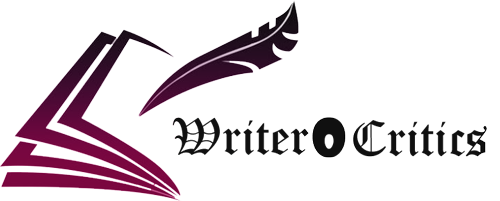
Simplify Home Buying with Smart Mortgage Solutions
Purchasing a home is one of the most significant financial decisions you’ll ever make. It can be both exciting and overwhelming, especially when it comes to navigating the complex world of mortgage solutions. From understanding different types of loans to choosing the right lender, the process can leave many feeling uncertain. However, with the right approach and knowledge of available mortgage solutions, you can simplify the home buying journey and make a more informed decision. In this article, we will explore the various mortgage solutions available today, their benefits, and how you can use them to secure your dream home.
Understanding Mortgage Solutions
Mortgage solutions are financial products that help homebuyers finance the purchase of a property. At its core, a mortgage is a loan provided by a lender, typically a bank or other financial institution, to help you buy a home. In return, you agree to pay back the loan over a set period, often 15 to 30 years, with interest. The key to simplifying the home buying process is understanding the different types of mortgage solutions that are available and how they can meet your needs. There are several primary types of mortgages: fixed-rate, variable-rate, FHA loans, and others. Each has its own unique features, and choosing the right one depends on your financial situation and goals.
Types of Mortgage Solutions
Fixed-Rate Mortgages
One of the most popular mortgage solutions is the fixed-rate mortgage. As the name suggests, the interest rate on a fixed-rate mortgage remains the same throughout the entire loan term. This makes it a stable and predictable option for many homebuyers, particularly those who prefer consistency in their monthly payments. Fixed-rate mortgages are available in various loan terms, with 30 years being the most common. The primary benefit of this mortgage solution is that your payments will never increase, which can make budgeting easier.
Adjustable-Rate Mortgages (ARM)
Unlike a fixed-rate mortgage, an adjustable-rate mortgage (ARM) has an interest rate that fluctuates over time based on market conditions. Typically, the initial rate on an ARM is lower than that of a fixed-rate mortgage, which can make it an attractive option for homebuyers who expect their income to increase or who plan to move before the rate adjusts. However, the uncertainty of future rate changes can be a disadvantage for some, especially if interest rates rise significantly. If you are considering an ARM, it’s crucial to understand how the rate changes will affect your monthly payments in the future.
Government-Backed Mortgages
For first-time homebuyers or those with less-than-perfect credit, government-backed mortgage solutions may be a good option. These loans are insured by the government and typically come with more favorable terms, such as lower down payments and more relaxed credit score requirements. The two most common government-backed mortgages are FHA loans and VA loans.
FHA Loans: The Federal Housing Administration (FHA) insures loans made by approved lenders to homebuyers with low to moderate incomes. These loans typically require a down payment as low as 3.5% and are available to buyers with credit scores as low as 580. FHA loans are an excellent choice for those who may not qualify for conventional financing.
VA Loans: The U.S. Department of Veterans Affairs (VA) provides VA loans to eligible military veterans, active-duty service members, and their families. These loans require no down payment and typically have lower interest rates than conventional loans. VA loans also do not require private mortgage insurance (PMI), which can make them an attractive option for those who qualify.
Jumbo Loans
For homebuyers who are looking to purchase a luxury home or a property that exceeds the conforming loan limits set by the government, a jumbo loan may be necessary. Jumbo loans are larger than conventional loans and typically come with higher interest rates. These mortgage solutions are ideal for individuals who are purchasing expensive properties, but they may also require a larger down payment and a higher credit score.
How to Choose the Right Mortgage Solution
Choosing the right mortgage solution is crucial to simplifying the home buying process. While it may be tempting to choose the first option that comes your way, taking the time to compare different loan types can save you money and stress in the long run. Here are a few steps to help you make the right choice:
Assess Your Financial Situation
Before diving into mortgage solutions, take a close look at your financial situation. How much can you afford to spend on a monthly mortgage payment? What is your credit score, and how much debt do you currently have? These factors will play a significant role in determining which mortgage solutions are available to you. Generally, lenders will look at your debt-to-income (DTI) ratio to ensure that you can afford the loan, so it’s essential to know where you stand before you begin.
Shop Around for the Best Rates
Not all mortgage lenders offer the same terms and rates, so it’s important to shop around for the best deal. Mortgage rates can vary based on your credit score, the type of loan you are applying for, and the lender you choose. By comparing rates from different lenders, you can find a mortgage solution that offers the most competitive terms for your situation.
Consider the Loan Term
The term of your mortgage solution will significantly impact your monthly payments and the total cost of the loan. While a 30-year mortgage may seem like the easiest option due to its lower monthly payments, it’s important to consider how much you’ll pay in interest over the life of the loan. A shorter-term mortgage, such as a 15-year loan, can save you money on interest but will require higher monthly payments. It’s important to choose a loan term that fits your financial goals and lifestyle.
Get Pre-Approved for a Mortgage
Getting pre-approved for a mortgage can streamline the home buying process and make you a more attractive buyer to sellers. Pre-approval involves submitting your financial information to a lender, who will then determine how much you qualify to borrow based on your income, credit score, and other financial factors. Pre-approval can also give you a clear idea of the mortgage solutions available to you, helping you focus on homes that fall within your budget.
Benefits of Working with a Mortgage Broker
While many homebuyers choose to work directly with a bank or credit union, working with a mortgage broker can offer several advantages. A mortgage broker acts as an intermediary between you and potential lenders, helping you find the best mortgage solution for your needs. Brokers have access to a wide range of lenders and mortgage products, which means they can help you compare options and secure more competitive terms. They can also help you navigate the paperwork and documentation required during the loan application process.
The Role of Mortgage Solutions in Long-Term Financial Health
Mortgage solutions not only help you secure a home, but they also play a crucial role in your long-term financial health. Choosing the right mortgage solution can help you build equity in your home over time, increase your credit score, and improve your financial stability. It’s important to stay on top of your mortgage payments and avoid missing payments, as this can lead to late fees, higher interest rates, and even foreclosure in extreme cases.
Refinancing Mortgage Solutions
Once you’ve settled into your home, it’s worth considering refinancing your mortgage if interest rates drop or if your financial situation improves. Refinancing allows you to replace your existing mortgage with a new one, potentially securing a lower interest rate, reducing your monthly payment, or shortening your loan term. However, refinancing may come with fees, so it’s essential to weigh the costs and benefits before deciding whether it’s the right choice for you.
FAQ’S
How do I know which mortgage solution is right for me?
Choosing the right mortgage solution depends on your financial situation, long-term goals, and preferences. Consider factors like your credit score, income, debt-to-income ratio, and how long you plan to stay in the home. Consulting with a mortgage broker or lender can help you understand your options and find a mortgage that suits your needs.
What is pre-approval, and why is it important?
Pre-approval is the process where a lender evaluates your financial information (income, credit score, debts, etc.) to determine how much they are willing to lend you. Getting pre-approved for a mortgage can streamline the home buying process, give you a clear budget, and make you a more competitive buyer in a competitive market.
